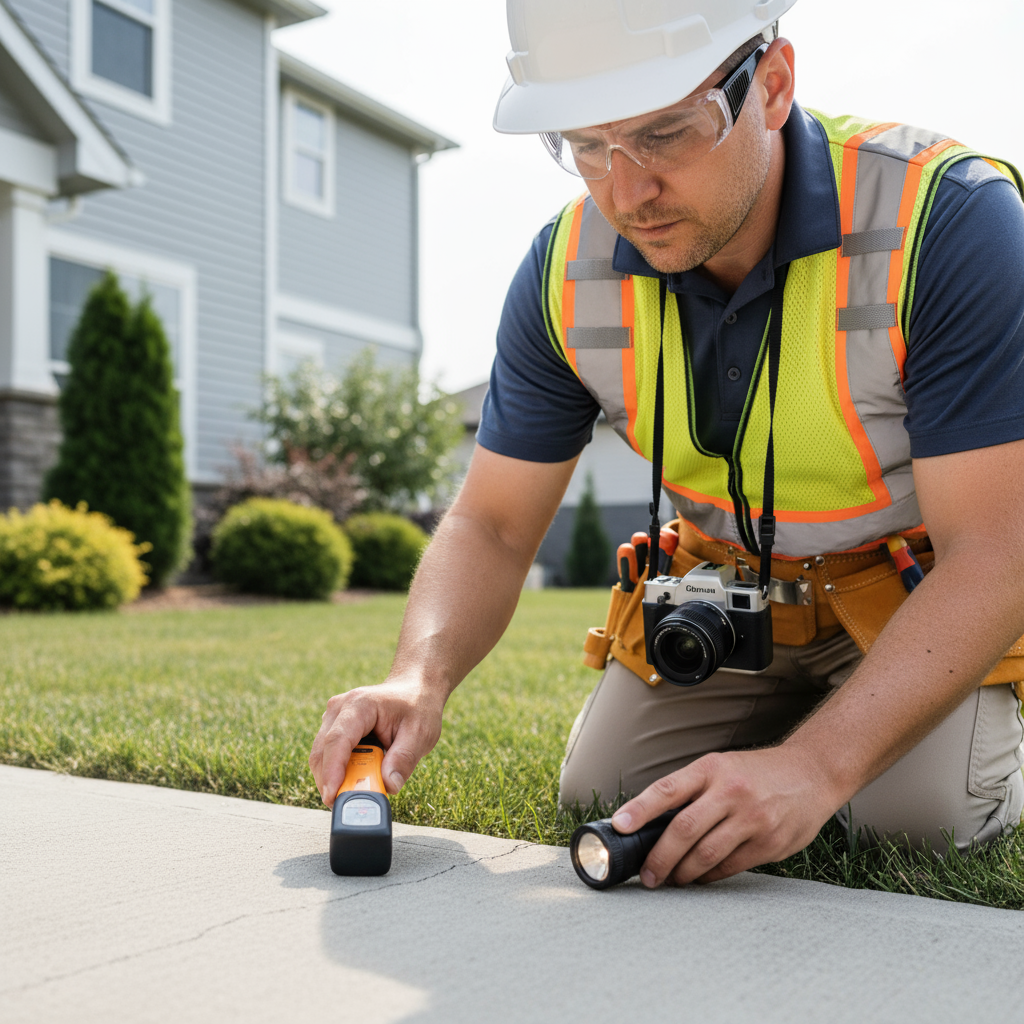
Table of Contents
Introduction
Buying or selling a home? Congratulations—you’re about to make one of the biggest financial moves of your life. But here’s the thing: between all the house hunting excitement and paperwork mountain, there are two crucial steps that often confuse the heck out of people. Home appraisal and home inspection. Sound similar? They’re not. Not even close.
Let me guess—you’re probably wondering what the difference is and why you need both. (Trust me, you do.) If you’re a first-time buyer, this stuff can feel like learning a foreign language. And that confusion? It can cost you. Big time. Whether you’re trying to secure a mortgage, negotiate a fair price, or just figure out if that “charming fixer-upper” is actually a money pit in disguise, understanding these two processes can save your financial bacon.
Here’s something that might surprise you: proper use of both appraisals and inspections can prevent major financial disasters and buyer’s remorse. We’re talking about protecting tens of thousands of dollars here. When you know what each process does (and when to use them), you’ll approach your home purchase with the confidence of someone who actually knows what they’re doing. No more surprises that make your wallet cry.
Look, real estate isn’t just about falling in love with a kitchen or getting excited about a backyard. Sure, that stuff matters. But smart buyers and sellers understand there’s a whole analytical side to this game. The appraisal tells you what the market thinks your dream home is worth. The inspection? That’s your reality check on whether the house will actually keep you warm, dry, and safe. Two completely different jobs, both absolutely essential.
Making smart property decisions isn’t rocket science, but it does require understanding what you’re getting into. Whether you’re buying for investment returns, personal enjoyment, or building long-term wealth, knowledge is your best friend. And speaking of building wealth, knowing the advantages of owning a home becomes a lot more meaningful when you understand what determines a home’s true condition and value.
What You’ll Learn in This Guide
We’re going to break this down so it actually makes sense. No jargon, no confusion—just the straight facts you need:
- Understanding a Home Appraisal: Learn the purpose, process, and who performs the appraisal to determine a property’s market value and why lenders require it.
- Exploring Home Inspections: Discover what a home inspection evaluates in terms of structural integrity, mechanical systems, and common issues inspectors look for.
- Key Differences: Get a detailed side-by-side comparison that clarifies the distinctions in scope, objectives, and outcomes for buyers and sellers.
- When and Why Both Are Needed: Understand the complementary roles appraisals and inspections play in protecting buyers’ and sellers’ interests and ensuring smooth transactions.
By the time we’re done, you’ll know exactly what questions to ask, how to read the reports, and what red flags to watch for. No more nodding along pretending you understand what your realtor just said.
Before we dive in, let’s talk money for a second. (Because that’s probably what’s keeping you up at night.) Getting a handle on your actual costs early helps prevent sticker shock later. A mortgage payment calculator with taxes can show you the real monthly numbers—not just the pretty principal and interest figure that makes everything seem affordable.
And here’s a pro tip: understanding appraisals and inspections gives you serious negotiating power. When you know what you’re talking about, you can make smart offers and handle counteroffers like someone who’s done this before. That confidence? It shows.
One more thing—real estate isn’t just about buying a place to live. If you’re thinking investment property, you’ll want to understand how to maximize your investment property tax deductions and calculate your ROI in real estate. These financial strategies work hand-in-hand with knowing what your property is actually worth and what condition it’s in.
Ready to become the kind of buyer or seller who actually knows what they’re doing? Let’s get started.

When you’re buying or selling a home, two terms keep popping up: appraisal and inspection. And honestly? Most people get them mixed up. Here’s the thing—they’re both important, but they do completely different jobs. Think of it this way: an appraisal tells you what your home is worth on paper, while an inspection tells you what’s actually going on behind those walls. One focuses on dollars and cents, the other on nuts and bolts. Getting this distinction right can save you headaches (and money) down the road.
Understanding Home Appraisals: Purpose, Process, and Professionals
Let’s start with appraisals. Simply put, an appraisal figures out what your home is worth in today’s market. But here’s what most people don’t realize—it’s not really for you. It’s for your lender. Banks need to know they’re not lending more money than the house is actually worth. Makes sense, right?
A licensed appraiser shows up and walks through your place, taking notes on everything from square footage to recent sales in your neighborhood. They’re looking at the big picture: location, size, condition, and what similar homes sold for recently. It’s pretty methodical. But here’s what they’re NOT doing—they’re not crawling around looking for problems or safety issues. That’s a whole different ball game.
The appraiser has to be licensed and follow strict rules. No cutting corners. Their job is to be completely objective, which protects everyone involved. If you’re curious about why property values matter so much in the long run, checking out the advantages of owning a home gives you the bigger picture on how these valuations tie into your overall investment strategy.
Now, appraisers aren’t looking for that leaky faucet or sketchy wiring. They’re focused on value, not repairs. And they know their stuff—these folks have specialized training and certification requirements they have to meet. Want to dig deeper into the numbers side of things? Understanding how to calculate ROI in real estate can help you see how appraised values factor into your investment returns.
Key Aspects of Home Appraisals
Here’s what you need to know about how appraisals work:
- Objective Market Value Assessment: The whole point is getting an unbiased estimate of what your home is worth right now. This number is huge for getting your loan approved and makes sure you’re not overpaying (or the bank isn’t overlending).
- Licensing and Professional Standards: Only licensed appraisers can do this work, and they have to follow state and national rules. This isn’t someone’s cousin who “knows real estate”—it’s a trained professional.
- Use in Mortgage and Financing Decisions: Your lender basically requires this. Whether you’re buying, refinancing, or getting a home equity loan, they want to know what they’re working with before they write that check.
- Factors Influencing Appraisal Value: Location is huge, but so are recent sales of similar homes, your property’s condition, size, and current market trends. The more you understand these factors, the better you can prepare for what the appraiser might find.
Bottom line: appraisals give you the financial snapshot, but they don’t tell the whole story about your home’s condition. That’s where inspections come in—and trust me, you want both pieces of this puzzle.
Home Inspections: Assessing Condition and Ensuring Safety
Now we get to the fun part—inspections. (And by fun, I mean potentially terrifying, but in a good way.) While appraisers care about value, inspectors care about whether your house is actually safe and sound. They’re like detectives, but instead of solving crimes, they’re uncovering potential problems before they become your problems.
A certified home inspector goes through your house with a fine-tooth comb. Foundation, roof, electrical, plumbing, heating and cooling—everything gets checked. They’re hunting for defects, safety hazards, and maintenance issues that could cost you big time later. It’s like getting a physical for your house.
What’s great about inspectors is they catch stuff you’d never notice during a regular walkthrough. That slightly sagging beam? The electrical panel that’s older than disco? The HVAC system that’s been held together with duct tape and prayers? They’ll find it. For sellers, this transparency actually helps—no surprises means smoother transactions. And if you’re wondering about boosting your home’s value based on what an inspection might reveal, how to improve home value has some solid advice on renovations and fixes that actually pay off.
Key Aspects of Home Inspections
Here’s what makes inspections so valuable in the home buying process:
- Comprehensive Physical Condition Assessment: Inspectors look at all the major systems and structural components to find current problems or potential future issues. It’s your reality check before you sign on the dotted line.
- Certified Inspectors with Technical Expertise: These professionals are trained to spot everything from minor maintenance needs to major red flags. They know what to look for and how to document it properly.
- Often Conducted Pre-Purchase: Most inspections happen before you finalize the deal, giving you leverage to negotiate repairs or walk away if the problems are too serious. It’s your last chance to really know what you’re getting into.
- Safety and Livability Considerations: Beyond just finding problems, inspectors identify safety hazards like mold, electrical issues, or structural concerns that could affect your family’s health and well-being.

Here’s the bottom line: knowing the difference between home appraisals and inspections could save you thousands of dollars and a whole lot of headaches. Think of it this way—an appraisal tells you what the house is worth on paper, while an inspection tells you what’s actually wrong with it. Pretty different jobs, right?
Your appraisal is all about the money. It looks at location, recent sales in the neighborhood, and market trends to give your lender confidence that the property is worth what you’re paying. But here’s what it won’t tell you: whether the roof leaks, if the electrical system is a fire hazard, or if that foundation crack is going to turn into a money pit. That’s where your inspection comes in—it’s like having a really thorough friend who knows construction take a hard look at everything that could go wrong.
If you’re buying, this one-two punch gives you serious peace of mind. You’ll know you’re not overpaying (thanks to the appraisal) and you won’t get blindsided by major repairs six months later (thanks to the inspection). And if you’re selling? Being upfront about both the value and condition of your home builds trust with buyers. That transparency often leads to smoother negotiations and fewer last-minute surprises that can kill a deal.
So what should you do right now? Simple—make sure you get both an appraisal and inspection on any property transaction. It’s not just smart; it’s standard practice that gives you real leverage when it’s time to negotiate. Want to dive deeper into property ownership? Check out the advantages of owning a home to see how this investment can work for you long-term. And if you’re thinking about investment properties, learning about investment property tax deductions can help you keep more money in your pocket. For those serious about real estate investing, our guide on how to calculate ROI in real estate breaks down exactly how to measure your success. And here’s a bonus tip—the negotiation skills you learn in real estate can help in other areas too, like negotiating car prices when you’re ready for that next big purchase.
You’re now armed with the knowledge to make smart, confident decisions in real estate. No more guessing, no more crossing your fingers and hoping for the best. When you understand what appraisals and inspections actually do—and why you need both—you’re setting yourself up for success. Take this information, use it wisely, and watch how much more confident you feel walking into your next property deal.
Frequently Asked Questions
-
Is a home appraisal the same as a home inspection?
- No, a home appraisal estimates the market value of a property for financing purposes, while a home inspection assesses the physical condition and safety of the home.
-
Can I skip one of them when buying a home?
- Skipping either can be risky. Both appraisal and inspection provide distinct, vital information that protects buyers financially and physically during a transaction.
-
How much do appraisals and inspections typically cost?
- Costs vary by location and property size, but appraisals often range from $300 to $500, and inspections from $300 to $600 on average.
-
Who pays for the appraisal and inspection?
- Typically, buyers pay for both services, but terms can be negotiated depending on the sale agreement and local customs.
-
What are common issues found in inspections?
- Common findings include roofing problems, plumbing leaks, electrical hazards, foundation cracks, and HVAC system concerns.

